Facebook Interest Targeting Guide: How We Search And Test Interests

Everyone advertises on social media and Facebook in particular. While there are many targeting options including age, gender and location, one has to pay a lot of attention to Facebook interest targeting as this method has proven to be really efficient.
We’ve talked about the importance of knowing your target audiences before. But learning who actually wants to buy your product isn’t that simple. AliDropship’s experience with self-owned dropshipping stores has taught us that interest based targeting is the most efficient way to reach potential customers.
In this article, I will cover a step-by-step method of Facebook interest targeting used by our team.
Step #1: Page post engagement (PPE)
The search starts with creating a PPE campaign, so choose “Post engagement” as your goal.
At this point, you don’t want or expect to sell any products at all. It’s Ok, don’t freak out. We need it to collect data and understand who our ideal customer is.
But first, we need to create a post devoted to the product we’re going to advertise. Its purpose is to trigger engagement, i.e. likes, comments and shares. Such activities can indicate whether or not people are interested in the content. Later we can use the same post to attract actual customers, but right now trying to convert the audience will cost you too much.
Something like this should do.
Why not create a Facebook ad right away? Because when you use an existing post for advertising, it accumulates likes and shares and advertising it again will get even cheaper. That’s why AliDropship’s team always creates posts first.
Now we’re going to start a Facebook advertising campaign to show this post to different people. But to whom? Here you’ve got two options.
1. Speculating on Facebook interests
If you promote a product belonging to a clear niche, it’s more or less easy to tell at least some facts about potential customers you want to target on Facebook and their interests.
If you’re selling a toolset, you can expect potential buyers to be interested in building, carpentry, renovating, car repairing, etc. It doesn’t mean you can’t be wrong about them, but it’ll narrow down your search to a few options.
Whenever possible, AliDropship’s team picks 5-10 interests in a corresponding ad set within a PPE campaign to narrow down the potential audience.
2. Not speculating at all
Sometimes, products are just too… versatile? You can’t tell for sure what interests potential customers may share, which makes Facebook interest targeting at this point almost impossible. For example, what can you tell about this mop and bucket?
In this case, the team doesn’t set interests at all and focuses on other demographics.
In both cases, you also want to limit the audience to one or several countries. The team usually picks the US, Canada, the UK and Australia as these markets have lots of solvent purchasers and people there speak English.
As for other parameters (mostly gender and age), at this point, you want to widen them as much as possible unless you’re absolutely sure about the age and gender of your potential customers.
Step #2: Testing ad sets
Now it’s time to run the PPE campaign to test audiences. In order not to spend too much money, the team monitors the campaign’s performance and stops ad sets if they demonstrate poor results. One or two days is usually enough to collect data.
One can also make the ad sets stop automatically after they accumulate a certain number of impressions. We usually set the limit to 2,000 impressions. As for their daily budget, the team sets it to $5, which is usually enough to test the ads.
However, if certain ad sets perform well, keep them running even after the test because PPE campaigns are good for warming up potential customers.
Whether you picked a number of interests for the ad or not, Facebook will show you the general statistics that includes such demographics as gender, age, location, devices used, etc.
If you used not one but a number of creatives during the test, you can also pick the one with the highest numbers.
To know what’s good and what’s not, look at both CTR metrics (All and Link clicks). Higher numbers indicate that more people interacted with the ad or followed the link to your website. Also, pay attention to the cost per unique content view as you want it to be as low as possible. Other metrics are less important.
Step #3: Conversion campaign (test)
Although at this point, we already know some facts about our target audience, we can do better.
The team creates a new campaign and sets the goal to Conversions. We use the data received during the previous phase to narrow down the audience and create several ad sets. This time, we’re going to set one interest per one ad set.
If it’s a niche product you’re advertising, pick the interests you came up with when creating the PPE campaign. If the product was too “versatile”, now is the time to make up some interests for it.
We didn’t do it during the PPE phase because without having the slightest idea on what interests to choose, there’s a high chance Facebook will show the ad to completely uninterested people. But at this point, it’s Ok since we’ve already collected certain data and want to test potential interests.
When potential interests of your Facebook audience are unclear, you can analyze the existing customers of your competitors.
Use AdSpy to find Facebook ads promoting similar or identical goods or simply search for them on Amazon. Then read comments, visit the Facebook pages of random customers and check what they like and what pages they’re following. All this can give an idea or two on what their interests are.
I described this method in the article on finding a target audience on Facebook.
Step #4: Conversion campaign (final adjustments to your Facebook interest targeting)
During this phase, your ad campaign should start converting Facebook users and turning them into buyers. However, expect some of the interests you have chosen to work worse than others.
If they perform too poorly, turn such interests off and focus on the more successful ones.
Furthermore, now that you are certain about at least one or two interests of your potential audience, you can use Facebook interest suggestions to expand the list. Simply type in one of the discovered interests and click on “Suggestions”.
Another method of Facebook interest targeting is searching for pages related to your products with Audience Insights. You can find this tool in Facebook ads manager.
If the product you’re going to advertise is obviously associated with certain interests (like gardening or plush toys), simply choose it in the “interests” field and look at the “Page Likes” tab. Facebook will show you what pages gather most of the likes from people with this interest.
After that, you can check if the Facebook group’s name can be found among the interests in your ad sets. If there is one, your ad will target people who interacted with the given Facebook group.
After another round of testing, you will have quite accurate information on what interests work best with a given product on Facebook.
If you find Facebook interest targeting to be too much trouble, consider purchasing one of AliDropship’s Premium Stores – precise copies of our own dropshipping websites with the best-selling goods within wide and profitable niches. Along with a store, you can also buy marketing materials including recommendations on target audiences and their interests.
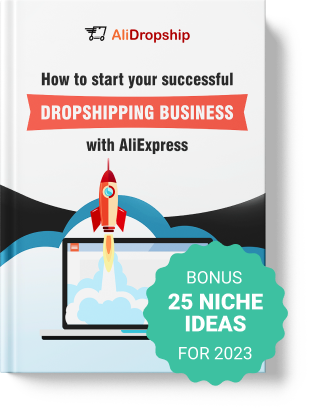
tutorials and special offers from AliDropship
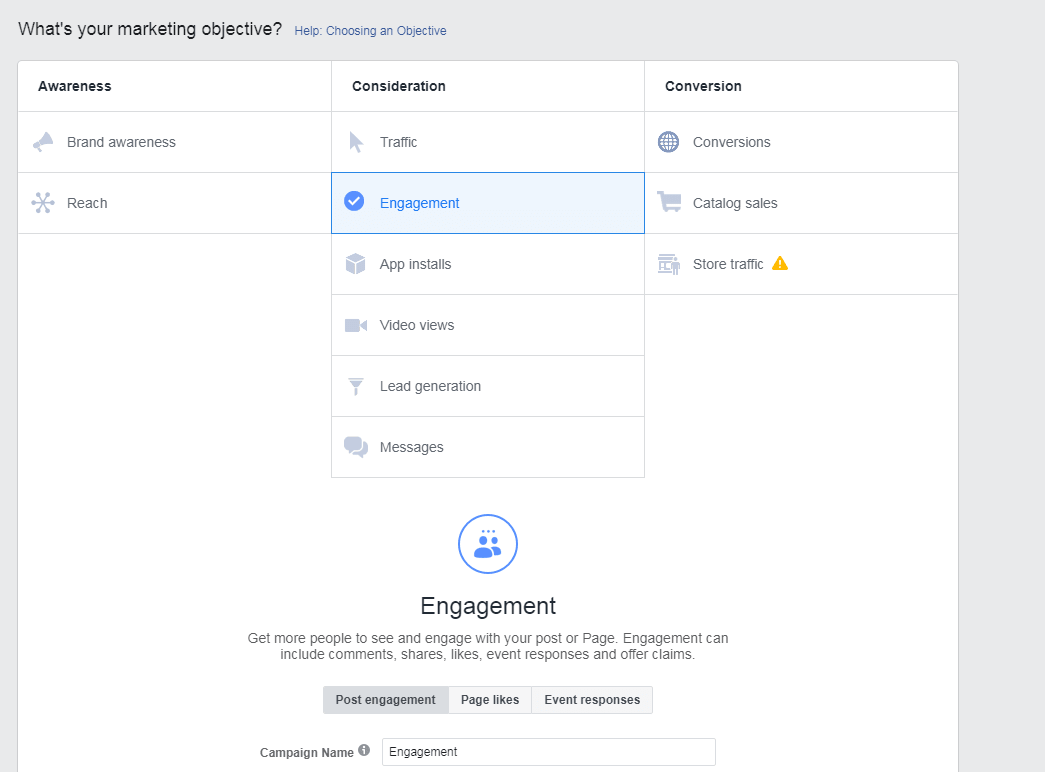
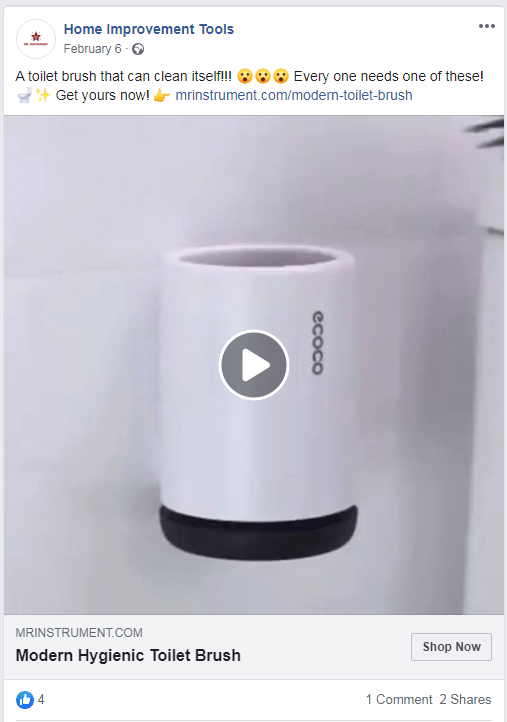
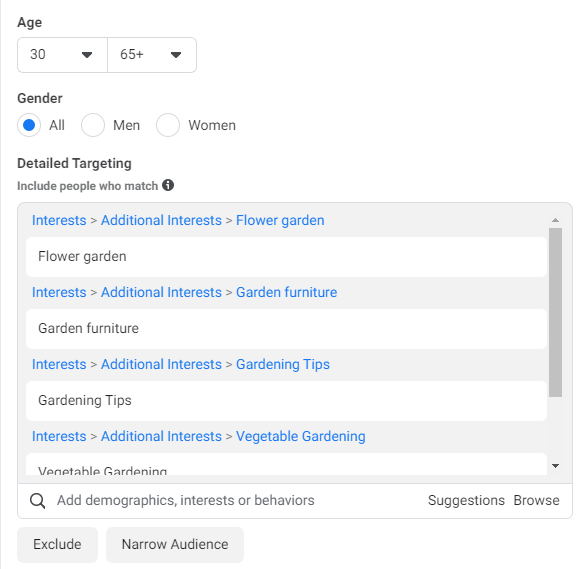


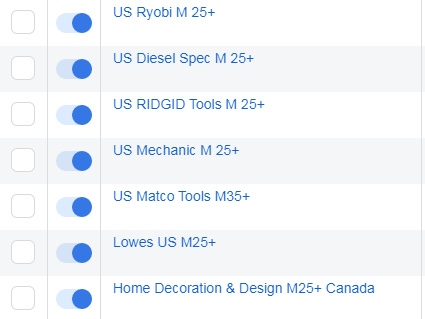
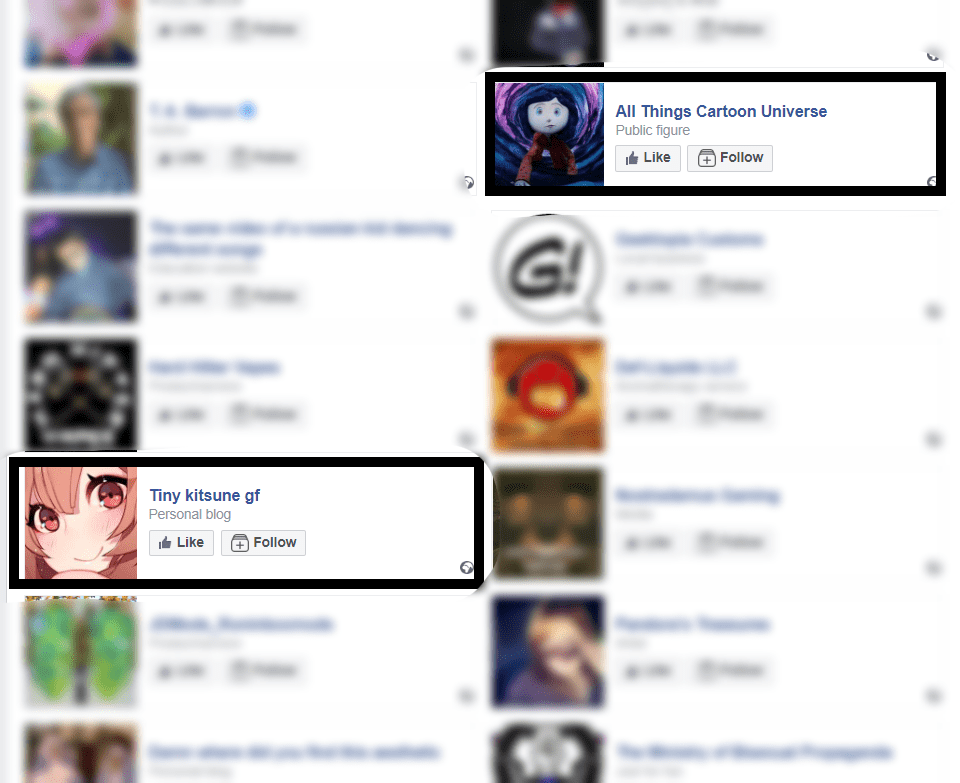
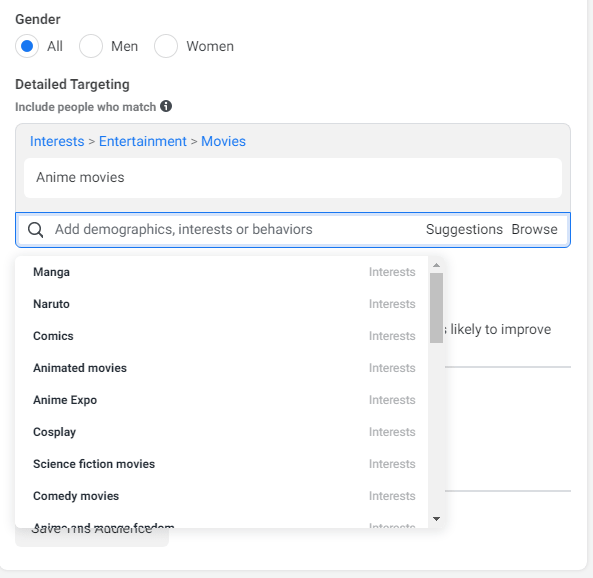
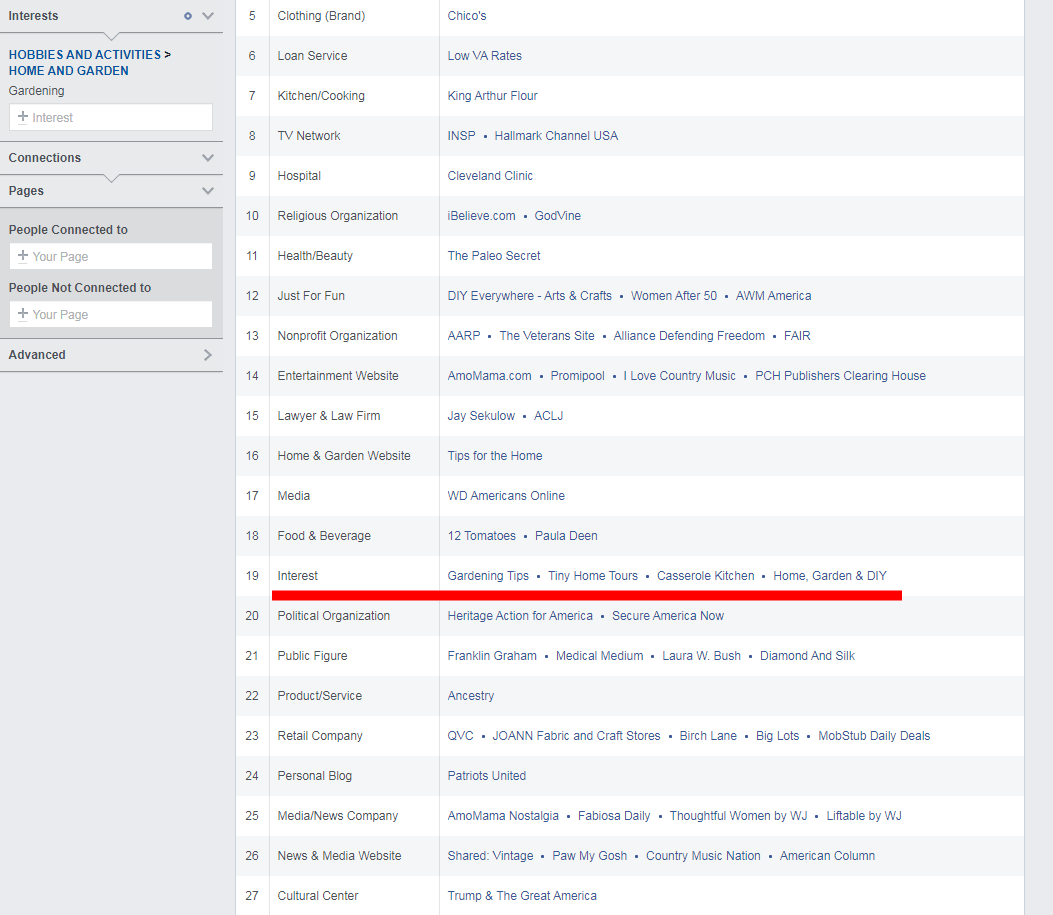
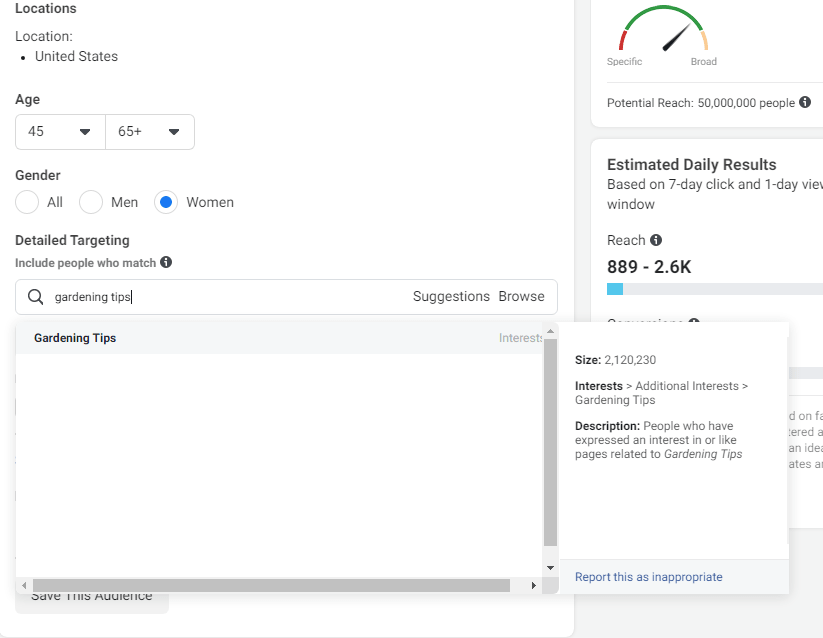
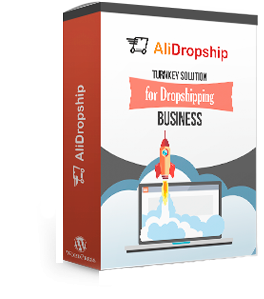
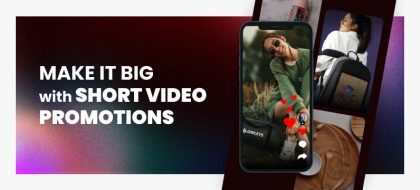
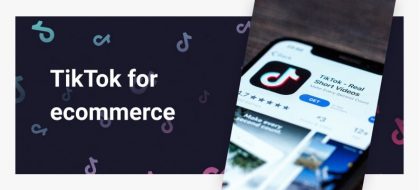
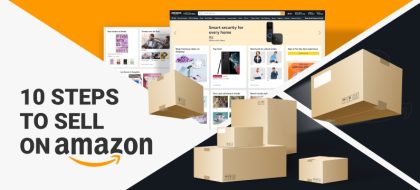





Hi Timur
Ich habe ein Premuim Online schop bei euch bestellt .Ich wollte fragen wegen soziale Media Werbung (Facebook,Instagram,twitter usw. ist möglich ,dass du die Aufgabe uübernimmst
Best regard
Mehrdad Kalhor
Hallo! Vielen Dank für Ihre Frage. Es tut mir Leid aber es gehört nicht zu meinen Aufgaben die Werbung in den sozialen Medien zu machen. In unserem Blog gibt es aber eine große Anzahl der tollen Artikel, die Ihnen helfen können, gute Werbespots zu entwickeln und zu produzieren. Zum Beispiel, https://alidropship.com/facebook-advertising-strategy-learn-how-to-promote-your-brand/
Viel Gluck